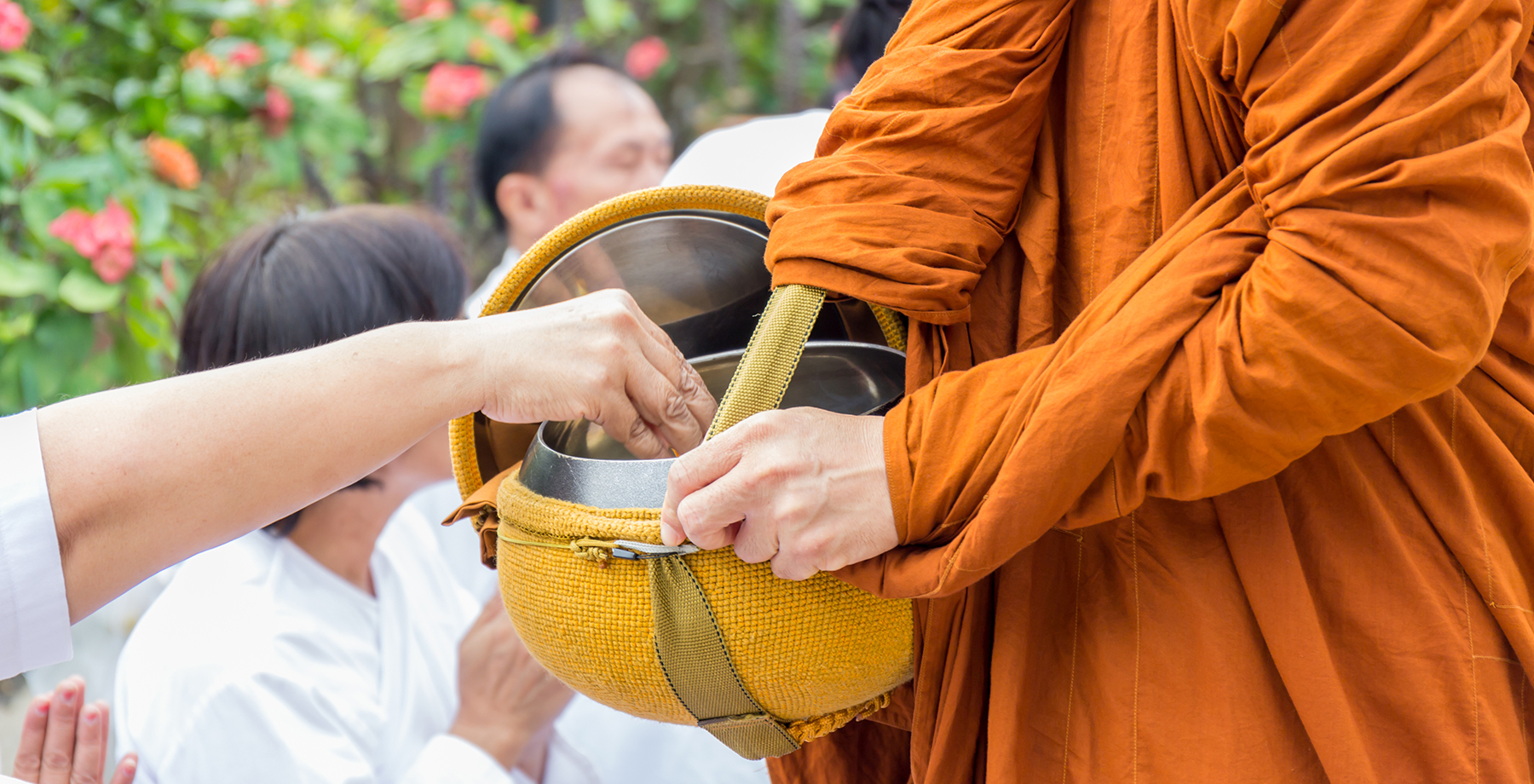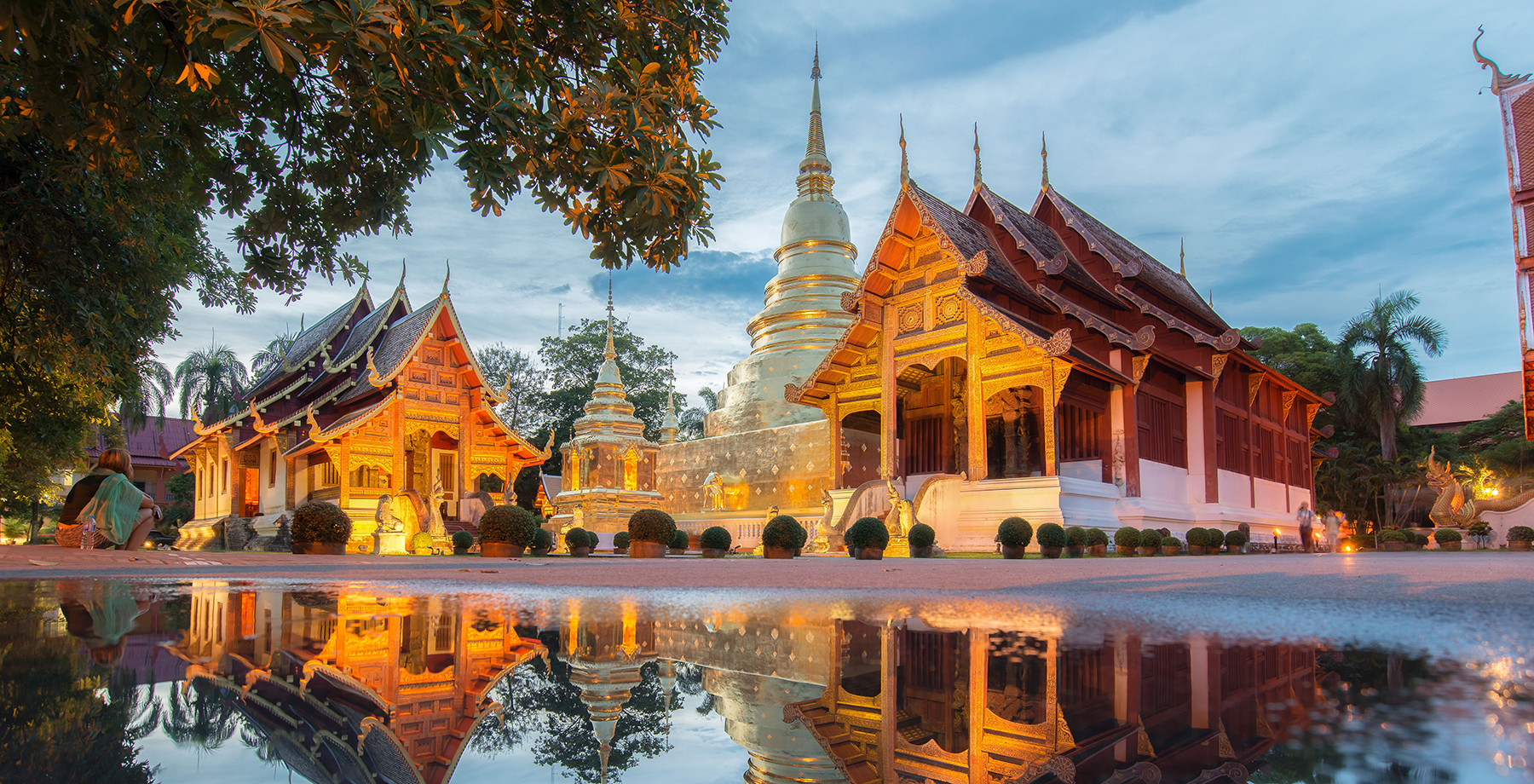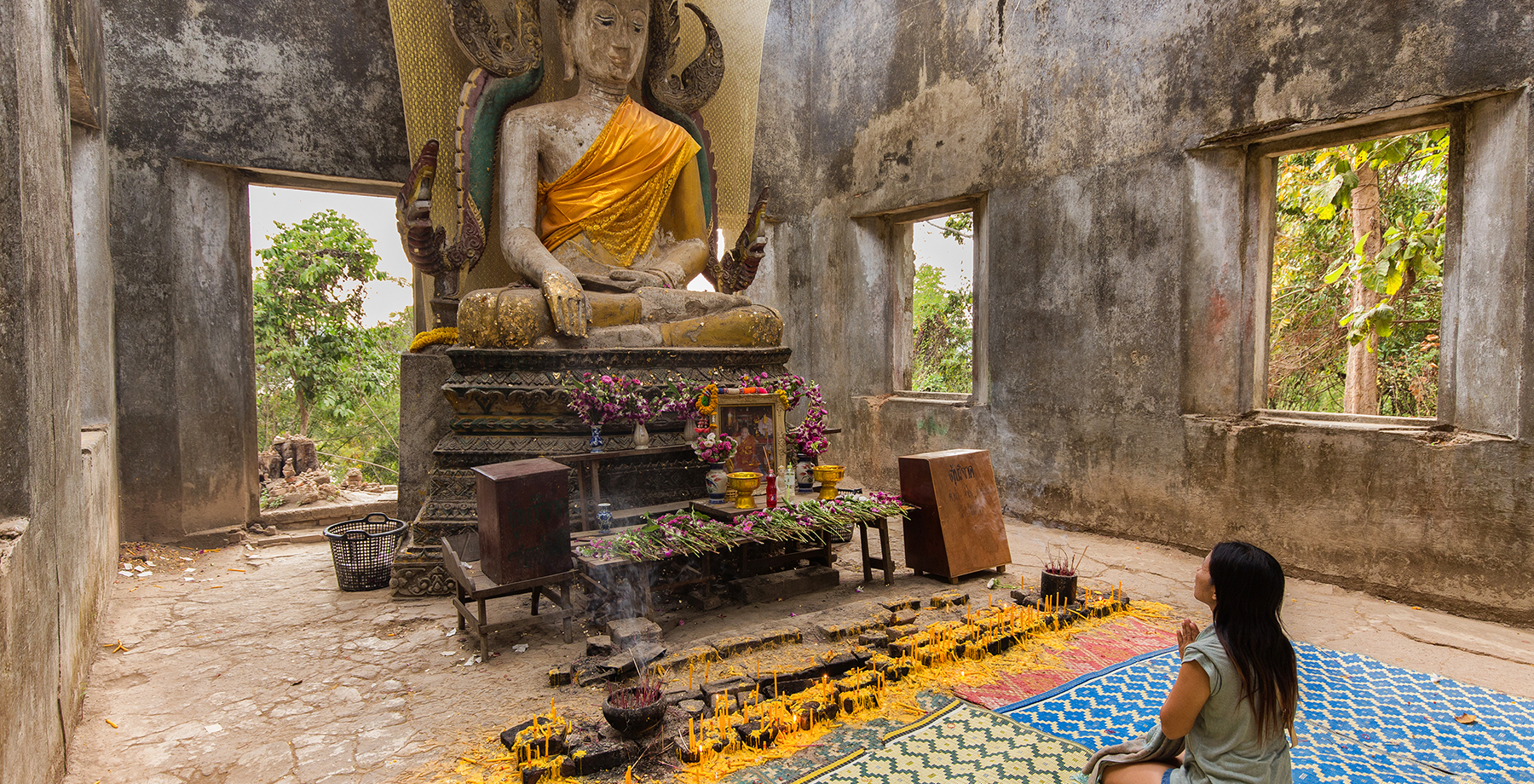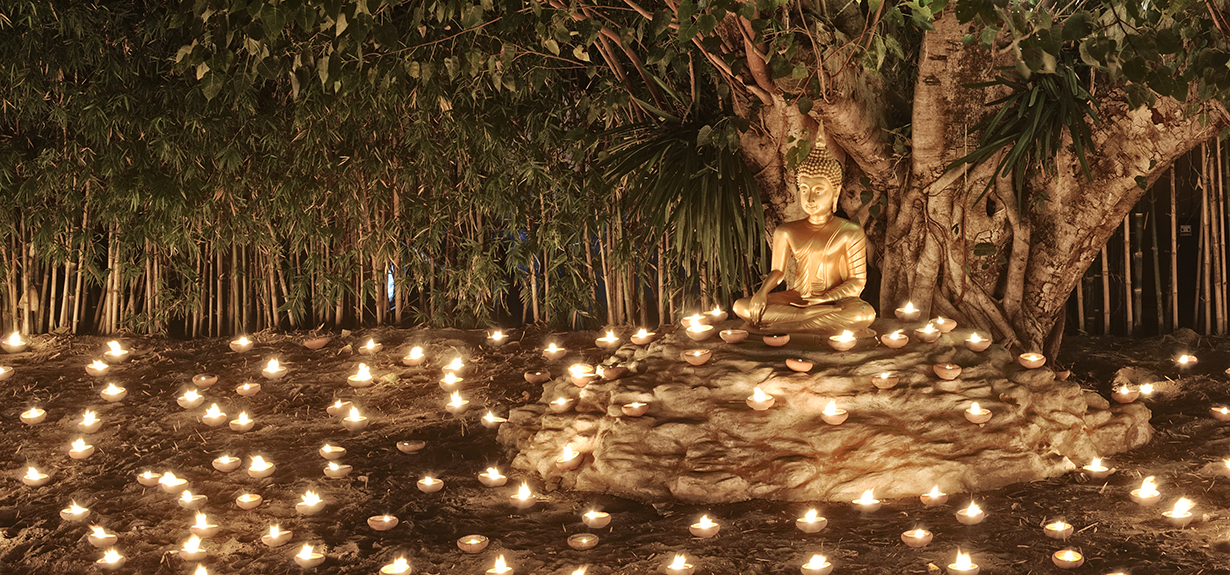Asia is not the first place most American travelers consider for a vacation. With its distance comes the need to adjust and adapt not only to a time change but to the vast cultural differences and spiritual uniqueness of the destination countries. And yet, taking such a long journey to a continent so different from our own can be powerfully educational and insightful about our world.
In this post, we explore the cultural significance of spirituality in the everyday lives of Thai people and how you can (and should) experience it in Thailand.

Thailand
The majority of Thais are Theravada Buddhists, and their approach to Buddhism informs each aspect of mainstream Thai culture. However, Thailand is home to numerous religions, including Hinduism, Christianity, Islam, and spiritual traditions like animism—each of which has its own distinctive rituals and beliefs.
Thailand’s Buddhism places a high value on achieving enlightenment through meditation and adhering to the Noble Eightfold Path. Meditation is a way to cultivate mindfulness, inner peace, and insight into the nature of reality. Thai Buddhists frequently practice a variety of meditation techniques, such as mindfulness meditation, breath awareness, and loving-kindness meditation. Spirituality is deeply integrated into the daily lives of Thais, influencing their well-being and mental health. Buddhist values like compassion, mindfulness, and respect for elders influence how Thais interact with people and conduct themselves publicly.
Thais regularly participate in spiritual practices to bring blessings, protection, and good fortune. It also provides a sense of purpose, meaning, and moral guidance, helping individuals cope with life’s challenges while finding inner peace. Thai people often seek advice from monks or spiritual leaders during important life events, such as births, weddings, and funerals. Monks hold a revered position in Thai society. Giving alms to monks, or “Tak Bat,” is a symbiotic relationship between the monks and Thais. It is another important Buddhist practice highly revered in Thailand, cultivating generosity and connecting the community.

Temples, or wats, are significant spiritual centers where Buddhists gather for meditation, prayer, and religious ceremonies. Temples double as social and community centers where important cultural events take place. Many monasteries also provide opportunities for practitioners to develop their meditation practice. Unique to Thai Buddhism and not practiced in many Buddhist nations, temporary ordination is a significant event in a Thai man’s life to gain merit and receive spiritual education.
Many Thais also incorporate animistic beliefs into their daily lives, seeking protection and blessings from spirits through offerings, rituals, talismans, Sak Yant/yantras (tattoos), and amulets. Spirit houses, known as “San Phra Phum,” are a visible symbol of the Thai belief in spirits and the interconnectedness between the spiritual and physical realms. These miniature houses are erected outside homes, businesses, and public places where people offer daily prayers, flowers, incense, and other offerings.
Spirit worship, animism, and reverence for local deities, known as “Phi,” are also common in rural areas. Many Thais believe in spirits residing in natural objects like trees, rivers, or mountains. In some ways, you can see similarities with the principle of kami in Japan, with a strong emphasis on interconnectedness, mindfulness, and respect for the spiritual realm. Spirituality is a personal and meaningful aspect of Thai culture. One may gain a deeper understanding of Thai spirituality in daily life by approaching these activities with respect, compassion, and a desire to learn.
Consider exploring some of Thailand’s famous temples, such as Wat Phra Kaew and Wat Arun in Bangkok, or the temples in Chiang Mai, like Wat Phra That Doi Suthep or Wat Phra Singh. Regardless of religion or age, anyone is welcome to observe and respectfully participate in temple rituals, make offerings, and experience the serene atmosphere. “Tak Bat” (almsgiving) to monks is an activity I frequently suggest doing as a pair, group of friends, or family. Monks rely on the community’s generosity for their sustenance, and offering food and other necessities to them is considered a virtuous act of merit-making.
Some temples also offer conversations with monks to those more serious about wanting to better understand Thai Buddhism. These casual conversations are meant to make Buddhism more approachable for people of all ages who may be interested in learning more. If you are interested, we can share more details about how to experience this.

Many Buddhist festivals are celebrated in Thailand throughout the year. If you spend time understanding the cultural, historical, and symbolic significance of the festivals and rites you come across, you can improve your experience. For instance, during the well-known Songkran, or Thai New Year, many tourists frequently participate in the fun water battles without giving the significance of water in Songkran much thought.
Other significant festivals are the Visakha Puja, a celebration of the three most important events in the Buddha’s life: his birth, reaching enlightenment, and finally, his passing. Or the Yee Peng/Loy Krathong festival in the North, where krathongs (decorative offerings) are floated into rivers—a fun activity for families traveling with kids that has significant spiritual and cultural value.
Our private travel team at Elevate Destinations is always on hand to customize tours and travel programs for individuals or group travelers to explore the spiritual and cultural sites mentioned here. Whether you want to travel to Thailand or explore spiritual practices in the other destinations we offer, we’ll be happy to guide you further.


